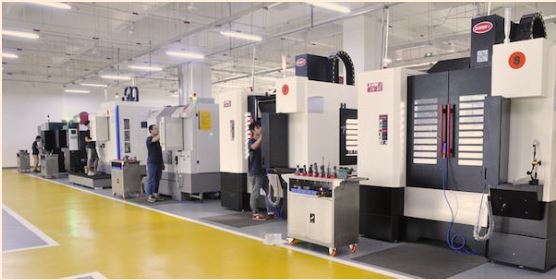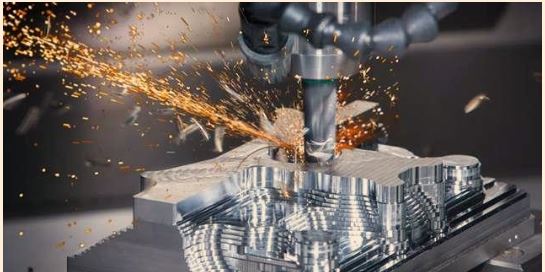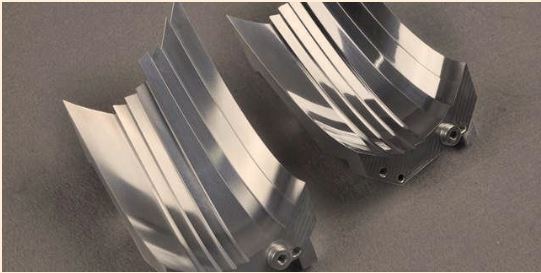How Die Makers Adapt to the Challenges of Machine Shops
Die making is a critical aspect of the manufacturing industry. It plays a pivotal role in the production of metal components through processes like stamping, forming, and other die-dependent operations.

However, machine shops, including die makers, face a multitude of complex challenges. New machining techniques, tools, and equipment are introduced at a rapid pace, requiring die makers to continuously update their knowledge and skills to remain at the forefront of the industry. Additionally, the increasing complexity of part designs and customer demands poses another challenge.
Die makers are faced with the need for precision, flexibility, and innovative solutions to meet the evolving requirements of their clients. These challenges highlight the importance of adaptability and forward-thinking strategies in the die making industry.
Challenges in machine shops
Machine shops encounter three significant challenges that demand innovative solutions: the rapid pace of technological advancements, the escalating complexity of part demands, and the shortage of skilled personnel.
Technological advancements in the manufacturing industry occur at an astonishing rate, introducing new machining techniques, tools, and equipment. Machining shops must continuously update their knowledge and skills to keep pace with these advancements and remain competitive. This necessitates ongoing learning, training, and investment in new technologies.
The complexity of part designs and customer demands is on the rise. Modern products often require intricate and precise components, pushing the boundaries of machining capabilities. Machine shops must adapt to handle the growing complexity, which includes intricate geometries, tight tolerances, and diverse material requirements. Meeting these complex part demands precision, flexibility, and the ability to provide innovative solutions. Machining shops need to invest in advanced equipment, software, and processes to ensure they can effectively manufacture intricate parts to meet customer expectations.

Additionally, the shortage of skilled personnel poses a significant challenge for machine shops. The manufacturing industry is facing a skills gap, with a scarcity of skilled machinists, programmers, and die-making specialists. Finding and retaining qualified personnel with the necessary expertise and experience is becoming increasingly difficult. CNC machine shops must implement strategies to attract and develop talent, such as offering competitive compensation, providing training programs, and fostering a positive work environment. Overcoming the shortage of skilled personnel is crucial for CNC machine shops to maintain productivity and meet the demands of their customers.
Adaptation Strategies of Die Makers
To effectively address these challenges, die makers employ a range of adaptation strategies that empower them to excel in their field. While continuous learning and skill development are fundamental aspects, let us explore other compelling adaptation strategies tailored for an expert audience.
One key strategy lies in the integration of computer-aided design (CAD) and computer-aided manufacturing (CAM) technology. By leveraging advanced CAD/CAM software, die makers can elevate their design capabilities, optimize machining processes, and enhance overall operational efficiency. CAD empowers them to create intricate and precise designs, while CAM equips them with tools for generating efficient toolpaths and optimizing machining operations. This integration streamlines workflows, reduces errors, shortens lead times, and elevates the overall quality of the final products.
The strategic utilization of automation and advanced machine techniques plays a crucial role in the success of die makers. Automation in precision machine shops enables the optimization of repetitive tasks, reducing human error and enhancing productivity. Cutting-edge automated systems, such as robotic arms and intelligent material handling solutions, adeptly handle tool loading, part handling, and quality inspection. This delegation of routine tasks allows skilled operators to focus on more intricate operations such as tool setup, programming, and troubleshooting.
In parallel with automation, die makers embrace advanced machine techniques to tackle the complexities inherent in modern part demands. High-speed machining in precision machine shops facilitates faster material removal rates while upholding precision, enabling die makers to meet stringent production deadlines. Five-axis machining offers the flexibility to handle intricate part geometries with fewer setups and reduced lead times, resulting in enhanced efficiency and improved part quality. By skillfully combining these advanced techniques with their expertise, die makers achieve significant improvements in productivity, cost reduction, and overall part quality.
Success Stories
Numerous success stories demonstrate the effectiveness of these adaptation strategies. For instance, a machine shop faced the challenge of keeping pace with rapidly changing technologies, making it difficult to meet evolving customer requirements. By seamlessly integrating CAD/CAM technology into their workflow, they witnessed augmented design capabilities, reduced lead times, and improved part accuracy. These improvements not only enhanced customer satisfaction but also furnished them with a competitive edge in the market.

Another notable example features a die maker confronted with intricate part demands necessitating advanced machining processes in precision machine shops. By judiciously implementing automation and advanced machine techniques, they achieved significant enhancements in productivity and quality. Automation deftly handled repetitive tasks, enabling skilled operators to focus on more intricate operations that required their expertise. Simultaneously, advanced machine techniques in CNC machine shops empowered precise and efficient machining of complex part geometries, meeting the rigorous demands of their customers while expanding their capabilities in producing high-quality parts.
Conclusion
Die makers operating within machining shops face multifaceted challenges arising from rapid technological advancements and increasingly complex part demands. To flourish in this dynamic environment, die makers adopt a range of strategies, including integrating CAD/CAM technology, leveraging automation, and embracing advanced machine techniques.
These adaptation strategies have proven successful in bolstering productivity, precision, and customer satisfaction. As the manufacturing landscape continues to evolve, the ability to adapt and harness technology and innovative techniques will remain indispensable for die makers and machine shops alike.
Information contained on this page is provided by an independent third-party content provider. Frankly and this Site make no warranties or representations in connection therewith. If you are affiliated with this page and would like it removed please contact [email protected]

